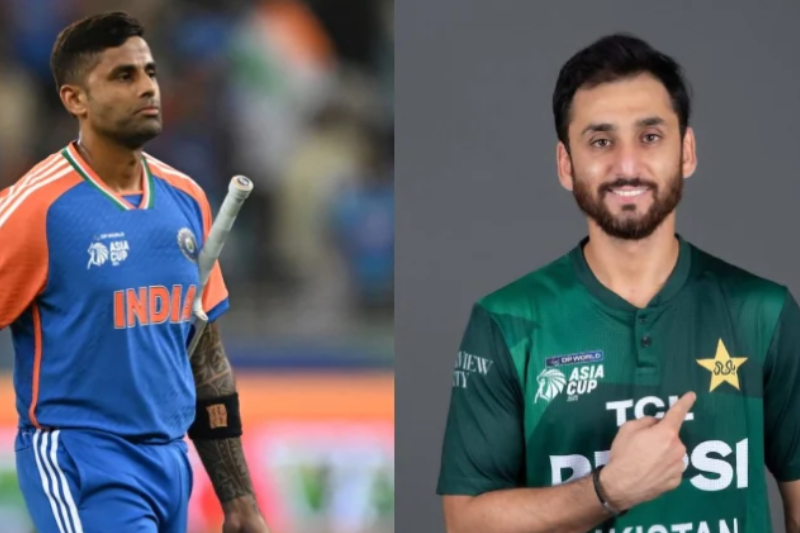Cricket Asian Cricket Council (ACC) is said to be thinking of penalizing the Indian cricket team after the controversial and unusual refusal to shake hands with the Pakistan players after the Asian cup 2025 winning in Dubai. This is an all time development that is likely to increase the tension between two most intense competitors in the world of cricket and the question of sportsmanship practices in the face of intense competition.
All the incidents related to it will be reviewed, and fines on Indian players will be one of the probable results. It is a major intensification on what started as a case of a violation of the customary etiquette of cricket but has now turned into an all out diplomatic crisis by the ACC.
ACC can do something about the players and fines or other punishments may be made after the review is done. According to sources in the administration of the game of cricket, several disciplinary measures are under consideration, including not only financial fines, but also formal reprimand.
The review provided by the council covers all the sensitive issues of the controversial encounter, such as the pre-match briefings, as well as post-game behaviour, which has attracted a lot of criticism among the stakeholders in the cricket field all over the world.
The council can refer to sub-clause 2.20 and 2.21 provisions of the Code of Conduct available to the International Cricket Council (ICC) in order to take action against the Indian side. These particular clauses deal with behaviors that are against the spirit of the cricket and that put the game into disrepute, which are given legal basis of possible penalties.
The official implementation of ICC Code of Conduct guidelines would be the first occasion when such grave accusations are raised against a team due to refusing customary handshakes. This case may have a long-term effect on the cricketing administration and diplomatic measures during high tension games in the future.
The official said that the umpires had permitted the Indians to walk out of the field without offered their hands in which the match referee had apologised when our team manager had protested. This disclosure is an indication that the match referee Andy Pycroft subsequently expresses his concern over how the incident was handled.
The fact that the match referee has issued a post-match apology suggests that he acknowledges that the correct procedures were not observed, and this can bolster the argument by Pakistan that the case should be disciplined. This official recognition seems to have been caused by a formal protest filed by team manager Naveed Akram Cheema.
The issue of the pre-match directives issued by Pycroft to the two captains against handshakes prior to the match has been the cause of concern of the complaining of Pakistan regarding the overall handling of the whole issue.
The Board of Control Cricket in India (BCCI) has ultimately come out to comment on the no-handshake scandal after which the reports have it that a disciplinary action may be taken against India due to the refusal of hand shake after the match with Pakistan was over.
The reaction of the BCCI shows that they are optimistic about their stand and understand the severity of disciplinary measures that can be taken against them. The Indian cricket officials are seen to be ready to justify the actions of their team as being done in the given situation.
Nonetheless, even though the global cricketing fraternity may not be satisfied much with the incident, the ICC is not likely to penalize the Indian team based on their conduct as noted by some cricket pundits, inferring varying views regarding the magnitude of possible penalties.
The refusal by the captain of the Pakistani team Salman Ali Agha to attend the presentation ceremony after the match was a protest against the behavior of the match. Also, Pakistani captain, Agha, never talked during the post-match captains interview with the host organization, which shows how discontented the Pakistani based team was.
This boycott by the administration made the event not just any on-field dispute but an actual diplomatic protest requiring the governing bodies in cricket to answer the question of what was the right procedure and what was considered being a good sportsman.
The multi-pronged strategy of the PCB, which concerned not only the behavior of the referee of the match, but also that of the Indian team, is a form of strategic thinking that seeks to leave precedents on future cases.
The lack of the traditional hand shake after the match has escalated into a major scandal, with news that Asian Cricket Council (ACC) may intervene by taking disciplinary measures. This increase brings to light the speed at which sporting incidents turn into diplomatic crises.
The scandal has revived debates over politics in cricket such as the impact of outside forces on the behavior of players and administrative ruling. The convergence of sporting procedures and geopolitical strains poses complicated issues on how to govern cricket.
The next India-Pakistan meet would need to improve safety measures to avoid such accidents that may involve compulsory briefings of the nature of sportsmanship and what happens to those who are not compliant.
Don’t miss this: Pakistan’s Official Protest to ICC Over Asia Cup Referee Decision
The fact that the ACC considered placing disciplinary action made may create some important precedents in dealing with the similar cases in the future during high-tension matches. Monetary fines imposed on players or clubs would create strong signals that would spell out the need to uphold the original values of cricket.
The fines seem the most probable form of punishment but the quantities and destinations are still debated. The penalties may not just be on individual players but on the management of various teams as well as possibly the officials of the cricket board.
As there is a possible Pakistan-India run in on Super Four stage and even the final, it is important to resolve this controversy to ensure the integrity of the tournament. ACC is in a dilemma about the need to take disciplinary measures and to make sure that competition is effective.
The result of this disciplinary exercise will probably affect future practices of the Asia Cup tournaments and the possible occurrence of other ICC events with politically oriented oppositions. This unprecedented state of affairs is being closely monitored by the cricketing administrators all over the world.
The ACC is still formulating its final ruling and the cricket community is waiting to know whether sporting customs will be maintained in the backdrop of geopolitics still playing out as it complicates the best rivalry against cricket.

